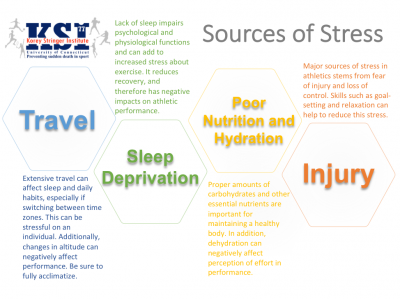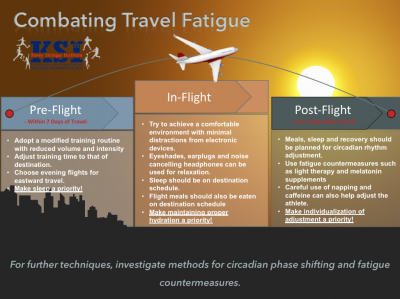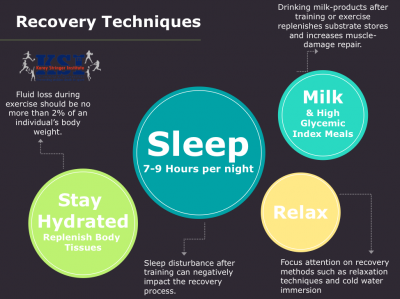Ryan Curtis MS, ATC, CSCS
Director of Athlete Safety and Performance
Stress and subsequent fatigue are a normal part of sport and life and often desired in order to augment adaption to training. The concept of periodization, being the organization of training stress and recovery, is usually on the forefront of performance and medical practitioner’s minds. When training and physical stress is balanced with adequate rest and recovery, acute fatigue is often diminished in a matter of hours or days. However, if the body is not allowed to return to a balanced state (homeostasis) before excess stresses are introduced, maladaptation occurs. In optimizing performance for sport or life, it’s important to note that not all stresses are desired or accounted for.In the midst of a hectic season or normal life demands, it’s easy to forget to acknowledge and appropriately prepare for things such as the stress of travel, sleep impairment, poor nutrition and/or hydration and injury. Implementing fatigue countermeasures begins first with recognition of outside stressors and then adherence to a few best-practice techniques.Below are a few visuals to help us become aware of undesired stress outside of training and techniques in combating travel fatigue and promotion of optimal recovery.



